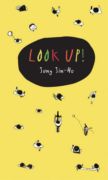
When a girl in a wheelchair calls to people far below to look up and see her, one finds a way to brighten her day.
Materials from Asia

When a girl in a wheelchair calls to people far below to look up and see her, one finds a way to brighten her day.
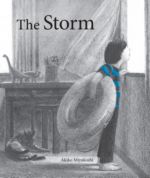
A little boy is excited about a trip to the beach with his parents planned for the following day. But a bad storm is coming, and he has started to worry they won’t be able to go. He watches as the sky grows darker through the afternoon. His mother and father close the shutters and bring the potted plants indoors. Then the storm arrives.
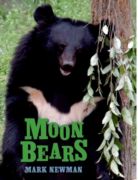
With their big round ears, moon-shaped crescents, and irresistible personalities, there is plenty to love about moon bears. Full of fascinating facts, this book is brought to life with photographs by wildlife photographer Mark Newman.

A young girl gazes out over the horizon, and wonders what lands lie beyond the ocean, and what the people are like who live in those lands.

First published over a century ago, these three unabridged stories from THE JUNGLE BOOK about the man-cub, Mowgli, have delighted adults and children ever since. The stories tell of Mowgli’s upbringing among the wolves; his lessons in the Law of the Jungle from Baloo the bear, Bagheera the black panther, and Kaa the python; his kidnapping by the Monkey People; and his clash with the evil tiger, Shere Khan.
The Jungle Book is critiqued as presenting a colonial British view of India.
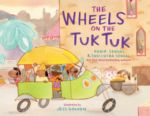
In this twist on the classic song “The Wheels on the Bus,” the wheels on the tuk tuk go round and round all over the city in India.

Curious and energetic Mei Mei attempts some t’ai chi forms as her grandfather demonstrates them, then tries to teach him basic yoga poses. Includes introductions to t’ai chi and yoga, as well as instructions for the exercises described in the text.

When Hee Jun’s family moves from Korea to West Virginia, he struggles to adjust to his new home. His eyes are not big and round like his classmates’, and he can’t understand anything the teacher says, even when she speaks s-l-o-w-l-y and loudly at him. As he lies in bed at night, the sky seems smaller and darker. But little by little Hee Jun begins to learn English words and make friends on the playground. And one day he is invited to a classmate’s house, where he sees a flower he knows from his garden in Korea — mugunghwa, or rose of Sharon, as his friend tells him — and Hee Jun is happy to bring a shoot to his grandmother to plant a “piece of home” in their new garden. Lyrical prose and lovely illustrations combine in a gentle, realistic story about finding connections in an unfamiliar world.
Featured in WOW Review Volume IX, Issue 4.
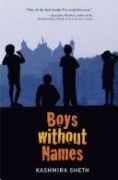
For eleven-year-old Gopal and his family, life in their rural Indian village is over: We stay, we starve, his baba has warned. With the darkness of night as cover, they flee to the big city of Mumbai in hopes of finding work and a brighter future. Gopal is eager to help support his struggling family until school starts, so when a stranger approaches him with the promise of a factory job, he jumps at the offer. But Gopal has been deceived. There is no factory, just a small, stuffy sweatshop where he and five other boys are forced to make beaded frames for no money and little food. The boys are forbidden to talk or even to call one another by their real names. In this atmosphere of distrust and isolation, locked in a rundown building in an unknown part of the city, Gopal despairs of ever seeing his family again. But late one night, when Gopal decides to share kahanis, or stories, he realizes that storytelling might be the boys’ key to holding on to their sense of self and their hope for any kind of future. If he can make them feel more like brothers than enemies, their lives will be more bearable in the shop—and they might even find a way to escape.

“In this novel in verse, a resilient American boy deals with bullying and the challenges of being an outsider that come with living in a Japanese fishing village”–
See the review at WOW Review, Volume 8, Issue 3